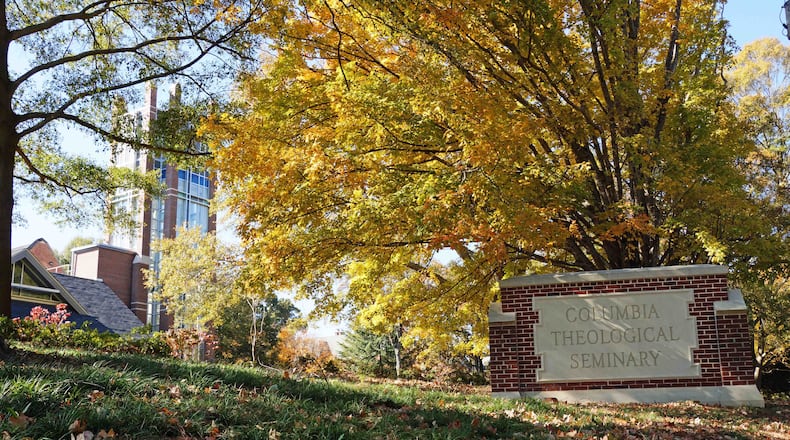Columbia Theological Seminary has joined other institutions of higher learning that today are reckoning with their past racial history and connection to the enslavement of Black people.
Some, like Union College in Nebraska, have made public apologies about the way African American students were treated in the past, but Columbia is taking it a step further.
The Decatur-based institution, which was founded in 1828 by a group of Presbyterian pastors, recently unveiled a plan that it hopes will address some of the wrongs that Blacks experienced and the role the seminary played.
The school, which became the center of the debate over the theory of evolution in what was then the Presbyterian Church in the United States during the 1880s, held its first classes in 1927 on the Decatur campus. Previously, the school operated in Columbia, South Carolina.
“As a Southern institution, white supremacy is part of our DNA,” said Corie Cox, a Columbia spokeswoman. “While the institution did not directly own slaves, we definitely benefited from the sale of slaves through donations made by Southern slave owners.”
The Columbia board of trustees recently approved a statement, “Repairing the Breach: Deepening Columbia’s Commitment to Black People and Their Flourishing,” that is the result of roughly a yearlong discussion on ways to address the harm done to Black communities.
Those steps include offering full tuition and fees for all Black students who apply and are admitted to master’s-level degree programs; naming a residence hall after Marcia Y. Riggs, the first Black professor to be tenured and the J. Erskine Love Professor of Christian Ethics; and implementation of new policies to foster partnerships and support for others working to address police brutality and racism.
The move at Columbia comes as the nation is grappling with the deaths of African American men and women at the hands of police. Protests against the deaths of Breonna Taylor in Louisville, Kentucky, and George Floyd in Minneapolis and systemic racism spread across the U.S.
“We felt that police brutality was one kind of vestige from the enslavement of Black people,” said the Rev. Brandon T. Maxwell, dean of students, vice president for Enrollment & Student Affairs and special adviser to the President for Equity, Diversity, & Inclusion.
The offer of full tuition and fees was “a form of reparations and a way to achieve equity, diversity and inclusion,” Maxwell said. “This is a fairly concrete response.”
In 2015, Lincoln, Nebraska-based Union College issued a letter to alumni apologizing to those who experienced racial discrimination at the college in the past.
And, last year, President Samuel Hoi, president of the Maryland Institute College of Art, apologized for the school’s racist history, which prohibited students of color from attending the Baltimore institution from 1895 to 1954.
At Columbia, the number of incoming students in the master’s-level program will range between 60 and 70 people. Course work can take one to four years. Last year, more than 40% of the students in those programs identified as Black, Maxwell said.
About a fourth of the school’s instructors and administrators are Black, according to Maxwell.
“In general, I think this is commendable but long overdue,” said the Rev. Robert M. Franklin Jr., the James T. and Berta R. Laney Chair in Moral Leadership at Emory University’s Candler School of Theology. “This is moral homework for many American institutions. Students of color have been demanding that institutions take seriously their presence and contributions for a long time and that it should go beyond symbolism.”
About the Author


